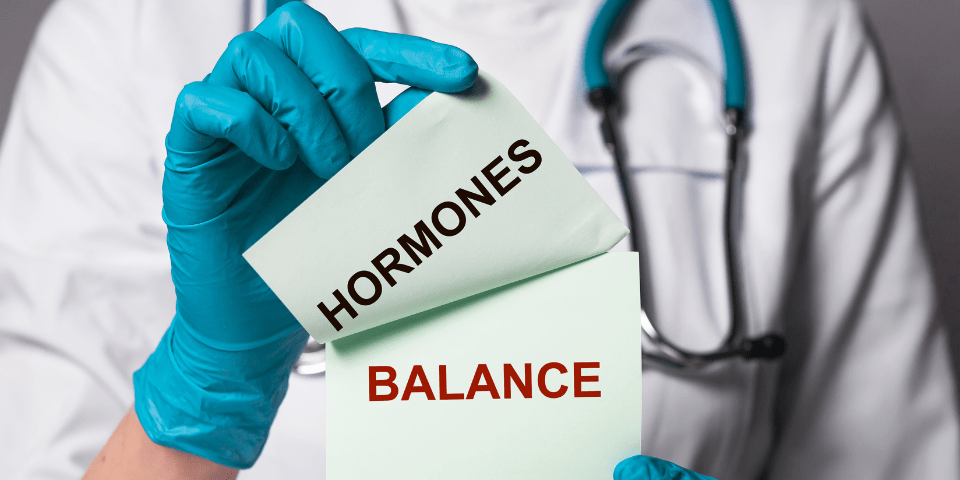1. Nutrition for Sexual Health

The foods we consume play a significant role in our sexual health. Certain nutrients can boost libido, enhance sexual performance, and improve overall vitality. Here’s a closer look at foods that can have a positive impact on sexual health:
Foods That Boost Libido
- Fuits and Vegetables: Fruits like watermelon and bananas contain essential vitamins and minerals that support circulation and hormone production. Leafy greens, such as spinach and kale, are rich in nitrates that help improve blood flow. Healthline discusses foods that can boost libido effectively.
- Nuts and Seeds: Almonds, walnuts, and pumpkin seeds are high in essential fatty acids, zinc, and vitamin E, which are crucial for hormonal balance and reproductive health.
- Whole Grains: Foods like oats and quinoa provide complex carbohydrates that give sustained energy, which is vital for sexual stamina.
- Dark Chocolate: Rich in flavonoids, dark chocolate can improve circulation and enhance mood, both of which contribute to a satisfying sexual experience.
- Spices: Spices like ginger, garlic, and chili peppers can boost circulation and stimulate nerve endings, enhancing sexual arousal.
Hydration and Sexual Health
Staying hydrated is equally important. Dehydration can lead to fatigue and decreased libido. Aim to drink plenty of water throughout the day to keep your body functioning optimally. WebMD offers insights into the benefits of hydration.
2. The Impact of Exercise on Sexual Health

Regular physical activity is a cornerstone of good health and significantly impacts sexual wellness. Here’s how exercise contributes to a better sex life:
Improved Circulation
Exercise increases blood flow throughout the body, including the genital areas. Improved circulation enhances arousal and can lead to better sexual performance.
Enhanced Mood
Physical activity releases endorphins, the body’s natural mood lifters. This reduction in stress and anxiety can lead to an increase in libido and sexual desire. Mayo Clinic explains the relationship between exercise and sexual health.
Increased Stamina
Regular workouts improve overall stamina and energy levels, making you feel more capable of engaging in sexual activities. Activities like yoga and Pilates can also enhance flexibility, which can be beneficial during sex.
Recommendations for Exercise
Aim for at least 150 minutes of moderate aerobic activity each week, combined with strength training exercises. Consider activities like brisk walking, swimming, cycling, or joining a dance class to make exercising enjoyable.
3. Stress Management Techniques

Stress is a significant barrier to sexual health, impacting libido and performance. Here are some effective strategies to manage stress:
Mindfulness and Meditation
Practicing mindfulness can help you stay present and reduce anxiety. Meditation techniques, such as deep breathing exercises or guided imagery, can promote relaxation and enhance sexual desire. Psychology Today provides resources on mindfulness practices.
Yoga
Yoga combines physical activity with mindfulness, making it an excellent stress-relief technique. Certain poses can also improve blood flow to the pelvic region, enhancing sexual health.
Journaling
Writing about your feelings and experiences can help you process emotions and reduce stress. Consider keeping a journal to track your thoughts, feelings, and sexual experiences.
Therapy and Counseling
If stress is impacting your sexual health, consider seeking professional help. A therapist can provide tools and strategies to cope with anxiety and stress in a healthy way. American Psychological Association has valuable resources on stress management.
4. The Importance of Sleep for Sexual Wellness

Quality sleep is essential for overall health and plays a crucial role in sexual wellness. Here’s how sleep impacts sexual health:
Hormonal Balance
Sleep regulates hormones related to sexual function, including testosterone and estrogen. Insufficient sleep can lead to hormonal imbalances that negatively affect libido.
Energy Levels
A good night’s sleep restores energy levels, making you feel more ready to engage in sexual activities. Conversely, sleep deprivation can lead to fatigue and decreased interest in sex.
Tips for Improving Sleep Hygiene
- Establish a Sleep Schedule: Go to bed and wake up at the same time every day to regulate your body’s internal clock.
- Create a Relaxing Bedtime Routine: Engage in calming activities before bed, such as reading or taking a warm bath.
- Limit Screen Time: Reduce exposure to screens at least an hour before bedtime to improve sleep quality.
- Make Your Bedroom Comfortable: Ensure your sleeping environment is conducive to rest—comfortable bedding, appropriate room temperature, and minimal noise. Sleep Foundation offers tips for better sleep hygiene.
5. Understanding Hormonal Balance

Hormones play a significant role in sexual health. Understanding how hormonal fluctuations affect sexual desire can help both men and women maintain balance:
Men’s Hormonal Health
For men, testosterone is a key hormone that influences libido and sexual performance. Low testosterone levels can lead to decreased interest in sex. Factors like stress, poor diet, and lack of exercise can contribute to hormonal imbalances. Healthline discusses testosterone levels and their effects.
Women’s Hormonal Health
For women, estrogen and progesterone levels fluctuate throughout their menstrual cycle and can affect libido. Hormonal changes during pregnancy, postpartum, and menopause can also impact sexual desire.
Tips for Maintaining Hormonal Balance
- Balanced Diet: Focus on a nutrient-rich diet that includes healthy fats, lean proteins, and plenty of fruits and vegetables.
- Regular Exercise: Physical activity can help regulate hormones and improve mood.
- Manage Stress: Incorporate stress-reducing techniques like yoga or meditation into your daily routine.
- Consult a Healthcare Professional: If you suspect hormonal imbalances, consider discussing options with a doctor.
6. Communication in Relationships

Open communication with your partner about sexual desires, boundaries, and preferences is essential for a healthy sexual relationship:
Creating a Safe Space
Encourage an environment where both partners feel comfortable discussing their feelings and desires. Avoiding judgment and fostering trust can enhance intimacy.
Discussing Boundaries
Talk about what you are comfortable with and what your boundaries are. Understanding each other’s limits is crucial for a satisfying sexual relationship.
Feedback and Understanding
Provide and ask for feedback about sexual experiences. This openness can lead to more fulfilling and enjoyable sexual encounters. Everyday Health highlights the importance of communication in relationships.
7. Healthy Relationships and Sexual Health

Emotional intimacy and trust are foundational elements of a satisfying sexual relationship:
Building Emotional Connection
Invest time in strengthening your emotional bond. Engaging in shared activities, open discussions, and spending quality time together can enhance your connection.
Trust and Vulnerability
Trust is crucial in a relationship. Being vulnerable with your partner can deepen emotional intimacy, leading to a more fulfilling sexual relationship.
Support and Understanding
Being supportive of each other during difficult times can strengthen your bond and enhance your sexual connection.
8. The Role of Hydration

Staying hydrated is vital for overall health, including sexual function:
Impact of Dehydration on Sexual Health
Dehydration can lead to fatigue, dry skin, and reduced libido. It can also affect bodily functions and blood flow, which are essential for sexual arousal and performance.
Tips for Staying Hydrated
- Drink Water Regularly: Aim for at least eight 8-ounce glasses of water daily, adjusting based on activity level and climate.
- Eat Water-Rich Foods: Incorporate fruits and vegetables with high water content, such as cucumbers, oranges, and strawberries.
- Limit Caffeine and Alcohol: Both can contribute to dehydration, so consume them in moderation. Healthline discusses the importance of hydration.
9. Safe Sex Practices

Practicing safe sex is essential for protecting your sexual health:
Importance of Protection
Using condoms and dental dams can reduce the risk of sexually transmitted infections (STIs) and unintended pregnancies. Discuss protection methods openly with your partner.
Regular STI Screenings
Regular check-ups and STI screenings can help maintain sexual health. Encourage your partner to get tested and be honest about sexual histories. The Centers for Disease Control and Prevention (CDC) provides guidelines on STI prevention and testing.
Educating Yourself and Your Partner
Knowledge is power. Understand the risks associated with different sexual practices and communicate openly with your partner about safe sex.
10. Exploring Sexual Wellness Products

There are various products available that can enhance sexual experiences:
Lubricants
Using lubricants can reduce friction and increase comfort during sex, enhancing pleasure for both partners. Consider water-based or silicone-based options.
Supplements
Some supplements are marketed to boost libido or improve sexual performance. However, consult with a healthcare provider before trying any new products. WebMD offers insights on sexual wellness products.
Devices and Toys
Sexual wellness products such as vibrators and other devices can enhance pleasure and intimacy. Explore different options to discover what works best for you and your partner.
11. Mental Health and Sexual Desire

Mental health conditions can significantly affect sexual desire and performance:
Link Between Mental Health and Sexual Desire
Conditions such as anxiety, depression, and stress can diminish sexual interest and affect sexual performance. It’s essential to recognize the impact mental health has on sexual wellness.
Coping Strategies
- Seek Professional Help: Consider therapy or counseling for mental health concerns.
- Practice Self-Care: Engage in activities that promote relaxation and well-being, such as exercise, hobbies, or spending time with loved ones.
- Communicate Openly: Discuss your feelings with your partner to foster understanding and support.
12. Alternative Therapies for Sexual Health

Holistic approaches can also support sexual wellness:
Acupuncture
Some studies suggest that acupuncture can help improve sexual function by promoting relaxation and enhancing blood flow. Verywell Health explores the benefits of acupuncture for sexual health.
Herbal Remedies
Certain herbs, such as ginger, ginseng, maca root, and ashwagandha, are believed to enhance libido and support hormonal balance. Always consult with a healthcare provider before trying any herbal supplements.
13. Aging and Sexual Health

As we age, sexual health can change, but a fulfilling sex life is still possible:
Understanding Changes
Hormonal changes, health conditions, and medications can affect sexual desire and performance as you age. It’s important to be aware of these changes and discuss them with your partner and healthcare provider.
Tips for Maintaining Sexual Wellness
- Stay Active: Regular exercise can help maintain energy levels and improve circulation.
- Prioritize Communication: Discuss any changes in sexual health openly with your partner.
- Explore New Ways to Connect: Be open to trying new activities or practices that foster intimacy and pleasure.
14. Cultural Perspectives on Sexual Health

Cultural attitudes towards sexual health can vary widely, influencing how individuals approach and discuss these topics:
Understanding Different Views
Exploring how various cultures view sexual health can provide valuable insights and foster understanding. Some cultures emphasize open discussions about sexual health, while others may be more conservative.
Learning from Others
Consider incorporating beneficial practices from different cultures into your own approach to sexual health. This might include communication styles, traditional practices, or holistic remedies.
15. The Impact of Substance Use on Sexual Health

Substance use can have significant effects on sexual performance and health:
Alcohol and Sexual Function
While alcohol may initially reduce inhibitions, excessive consumption can impair sexual performance and lead to decreased libido.
Drugs and Sexual Health
Recreational drug use can also negatively impact sexual health. Certain substances may affect mood, energy levels, and overall health.
Smoking and Sexual Health
Smoking can impair circulation, leading to difficulties in sexual arousal and performance. Quitting smoking can significantly improve sexual health and overall well-being.
Conclusion
Improving sexual health involves a holistic approach that includes nutrition, exercise, stress management, and open communication. By focusing on these aspects, you can enhance your sexual wellness and build satisfying relationships. Remember that sexual health is an essential component of overall well-being, and investing in it can lead to a more fulfilling life.